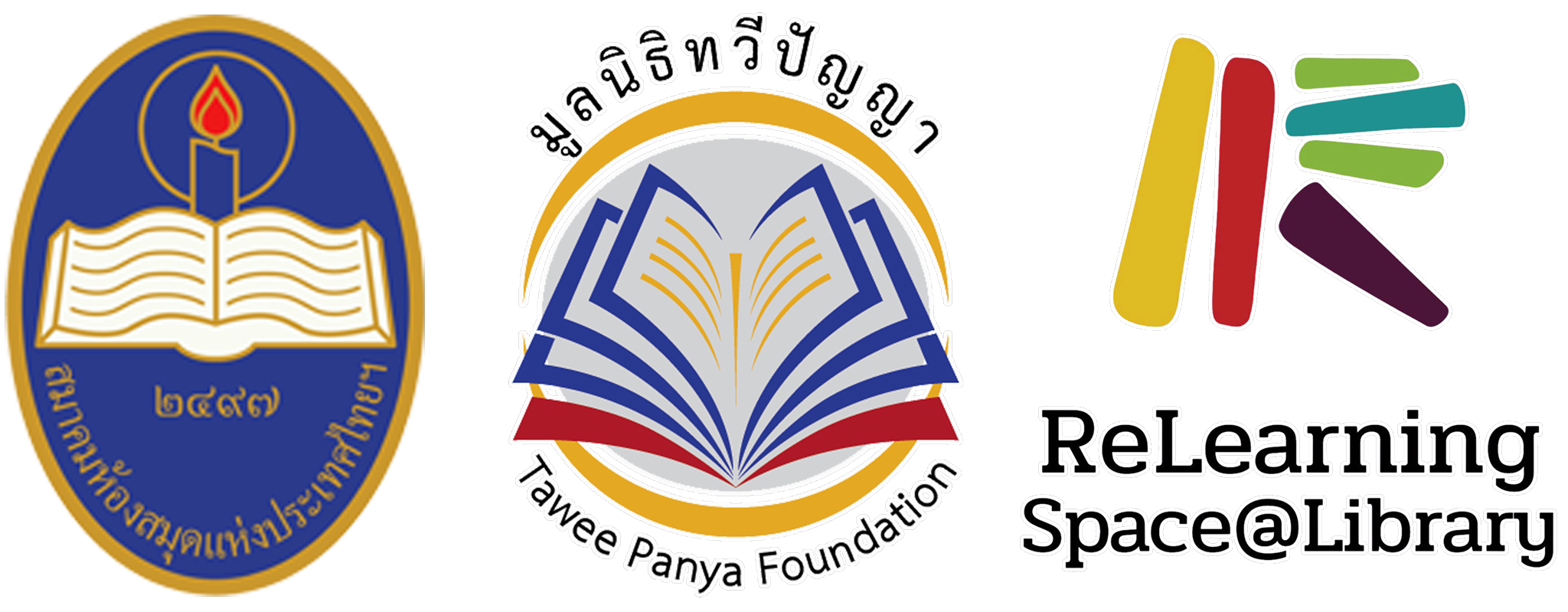Workplace learning for information professionals in a changing information environment
Chutima Sacchanand
Information Science, School of Liberal Arts Sukhothai Thammathirat Open University Nonthaburi, Thailand
E-mail : laasschu@stou,ac.th
Abstract
Changes are taking place in society, particularly in higher education. The explosion of knowledge and information technology has virtually altered the characteristics of the learning environment, paving the way for new learning experiences. This is having a dramatic impact on the library and information profession, leading to changes in the continuing education of information professionals. This paper focuses on the role that workplace learning plays in the continuing education of library and information professionals-how they should go about learning what they have to learn and the conditions of workplace learning. Reforming workplace learning is introduced.
Keywords
-
Full Text:
Bibliography
Abella, K.T. (1989). Building successful training programs. Reading, Mass: Addison-Wesley. Apps, J.W. (1991). Mastering the teaching of adults. Malabar, FL: Krieger.
Argyris, C. & Schon, D.A. (1978). What is an organization that it may learn? Organizational learning: A theory of action perspective. Reading: Addison-Wesley.
Brockett, R.B. and Heimstra, R. (1991). Self-direction in adult learning: Perspectives on theory, research, and practice. London. Routledge.
Bryant, S.L. (1995) Personal professional development and the solo librarian. London: Library Association Publishing.
Caffarella, R.S. (1988). Program development and evaluation resource book for trainers. New York: John Wiley & Sons.
Calfert, G., Mobley, S. and Marshall, L. (1994) Grasping the learning organization. Training and Development, 48, 38-43.
Campbell, J.D. (1996). Building an effectiveness pyramid for leading successful organizational transformation. Library Administration and Management, 10:2, 82-86.
Candy, P.C. (1991). Self-direction for lifelong learning: A comprehensive guide to theory and practice. San Francisco: Jossey-Bass.
Carr, W. and Kemmis, S. (1986). Becoming critical: Education, knowledge, and action research. London: Falmer Press.
Cavaliere, L.A. and Sgroi, A. (1991). Active learning: Perspectives on learning that leads to personal development and social change. In Learning for personal development, eds. L.A. Cavaliere, A. Sgroi. (New directions for adult and continuing education, no. 53). San Francisco: Jossey-Bass.
Cervero, R.M. (1986). Effective continuing education for professionals. San Francisco: Jossey-Bass.
Clutterbuck, D. (1991). Everyone needs a mentor: Fostering talent at work. London: Institute of Personnel Management.
Cohen, S. (1994). The future and HRD. In Human resources management and development handbook, ed. W. Tracey. 2nd ed. New York: AMACOM.
Cross, I.P. (1981). Adults as learners. San Francisco: Jossey-Bass. Daniels, S. (1994). The learning organization. Work Study 43:8, 5-6.
Greogory, M. (1995). The accreditation of work-based research: An action research/action learning model. In Research, teaching and learning in higher education, eds. B. Smith and S. Brown. London: Kogan Page.
Griego, O.V., Geroy, G.D. and Wright, P.C. (2000). Predictors of learning organizations: a human resource development practitioner's perspective. The Learning Organization 7:1, 5-12.
Grundy, S. and Kemmis, S. (1988). Educational action research in Australia: The state of the art (an overview). In The action research reader, ed. S. Kemmis. Victoria: Deakin University Press.
Hayes, E. (ed.) (1989). Effective teaching styles. (New directions for continuing education, no. 43). San Francisco: Jossey-Bass.
Holliday, R. (1994). Teachers as learners: A case study of conditions that promote teachers' professional learning. A thesis submitted for the degree of Doctor of Philosophy, University of New England, Australia. (An extract)
Holliday, R. 1998) EEB 703 Workplace learning. Module 1: Foundational concepts; Module
2: Foundational concepts Topic 3 to 7; Module 3: Facilitating workplace learning. Wagga Wagga: Charles Sturt University.
Lim, E. (1977). Human resource development for information societies : the Asian perspective. In Planning human resource development for information societies. Bangkok: STOU and UNESCO.
Marsick, V.J. (1987). New paradigms for learning in the workplace. In Learning in the workplace, ed. by V.J. Marsick. London: Croom Helm.
McCann, I. And Radford, R. (1993). Mentoring for teachers. The collaborative approach. In The return of the mentor: Strategies for workplace learning, eds. B.J. Caldwell and E.M.A. Carter. London: The Falmer Press, p. 25-43.
Merriam, S.B. and Caffarella, R.S. (1991). Learning in adulthood: A comprehensive guide. San Francisco: Jossey-Bass.
Retallick, J. (1993). [Chair]. Workplace learning in the professional development of teachers. Commissioned Report No. 24 by the Schools Council of the National Board of Employment, Education, and Training. Canberra, Australian Government Printing Office.
Revans, R.W. (1983). The ABC of action learning. Bromley: Chartwell-Brath.
Rowden, R.W. (1996). Current realities and future challenge. In Workplace learning debating five critical questions of theory and practice, ed. R.W. Rowden. ((New directions for adult and continuing education, no. 72). San Francisco: Jossey-Bass.
Saltiel, I.M. (1998). Defining collaborative partnerships. In The Power and potential of collaborative learning partnerships, eds. I.M. Saltiel, A. Sgroi, R.G. Brockett. (New directions for adult and continuing education, no. 79). San Francisco: Jossey-Bass.
Sengle, P.M. (1990). The leader's new work: Building learning organizations. Sloan Management Review, Fall, 7-23.
Spikes,
Wakins, K.E. and Marsiel, V.J. (1993). Sculpting the learning organization. San Francisco, Jossey-Bass.
Zuber-Skerritt, O. (1992). Professional development in higher education: A theoretical framework for action research. London: Kogan Page.



